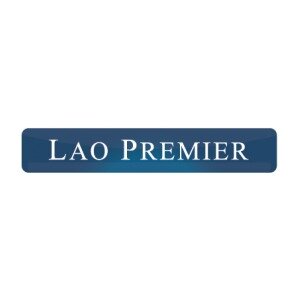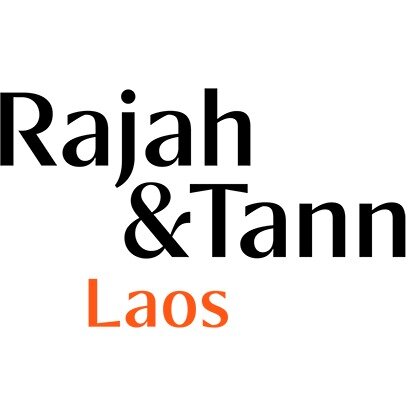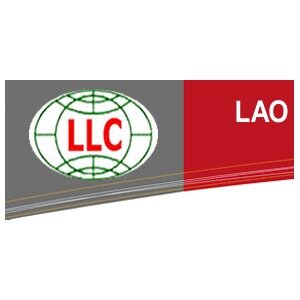Best Energy Regulatory Law Lawyers in Vientiane
Share your needs with us, get contacted by law firms.
Free. Takes 2 min.
List of the best lawyers in Vientiane, Laos
About Energy Regulatory Law in Vientiane, Laos
Energy Regulatory Law in Vientiane, Laos governs the production, transmission, distribution, and regulation of energy resources such as electricity, oil, and natural gas. In Laos, the energy sector is crucial due to its economic link to hydropower projects, power export agreements, and growing domestic demand. The legal framework is designed to ensure the sustainable development of energy resources, protect the environment, and encourage foreign investment while safeguarding public interest and national resources.
Why You May Need a Lawyer
Energy Regulatory Law is complex and constantly evolving in Laos. Individuals and businesses may need legal support for various reasons, including:
- Negotiating and drafting power purchase agreements
- Applying for licenses or permits to operate energy facilities
- Navigating regulations related to renewable energy projects
- Settling land use and environmental compliance issues
- Resolving disputes with government authorities or partners
- Complying with foreign investment requirements in the energy sector
- Addressing tariff setting and regulatory fee disputes
- Ensuring compliance with cross-border energy trading laws
- Consulting on new legal developments and regulatory updates
Local Laws Overview
Several key laws and government regulations define the energy sector in Vientiane, Laos. The primary legal instruments include the Law on Electricity, the Law on Investment Promotion, and environmental protection regulations. The Ministry of Energy and Mines (MEM) and the Energy Regulatory Authority of Lao PDR (ERAL) are the central regulatory bodies overseeing energy-related matters. Local laws focus on licensing, tariff setting, consumer protection, investment incentives, environmental safeguards, and dispute resolution mechanisms. Notably, hydropower projects must satisfy both environmental and social assessment requirements before winners are selected or licenses are granted. Foreign entities must adhere to special investment rules, and local content requirements often apply when implementing large-scale energy projects.
Frequently Asked Questions
What is the main authority regulating energy in Laos?
The Ministry of Energy and Mines (MEM) is the main government entity overseeing the sector. The Energy Regulatory Authority of Lao PDR (ERAL) handles tariff setting, licensing, and supervision of energy operations.
How does Laos regulate foreign investment in energy?
Foreign investment in the energy sector is governed by the Law on Investment Promotion and sector-specific regulations. Projects typically require approval from multiple governmental bodies and may be subject to joint ventures or local content requirements.
What is required to start an energy project in Vientiane?
Developers must secure several permits and licenses, including environmental approval, land use certificates, and energy-specific operation licenses. Power purchase agreements must also be negotiated with Electricite du Laos (EDL), the state power utility.
What are the main types of energy projects in Laos?
The most common projects are large-scale hydropower plants, solar photovoltaic farms, biomass energy, and limited fossil fuel initiatives.
How are electricity tariffs determined?
Energy tariffs in Laos are regulated by ERAL, based on project costs, public interest, and market conditions. Changes to tariffs require regulatory approval and often involve public consultation.
What environmental regulations apply to energy projects?
Projects must comply with national environmental laws, conduct Environmental and Social Impact Assessments (ESIAs), and implement mitigation measures approved by authorities.
Can individuals or businesses export electricity from Laos?
Yes, but export licenses are mandatory. Exporters must secure agreements with neighboring countries, comply with national export policies, and adhere to technical grid standards.
What should I do if I have a dispute over an energy contract?
Seek legal advice promptly. Disputes are commonly resolved through negotiation, mediation, or arbitration. Some contracts may specify international arbitration venues for larger transactions.
What government support or incentives exist for renewable energy?
Laos offers tax incentives, customs exemptions, and preferential treatment for qualifying renewable energy projects. These incentives are detailed under the Law on Investment Promotion and sector regulations.
Do energy projects need to consult local communities?
Yes. Public consultation is often required, especially for projects affecting local land or communities. This is integral to the permitting process and environmental assessment.
Additional Resources
If you need further assistance or wish to understand more about Energy Regulatory Law in Vientiane, consider exploring the following organizations and authorities:
- Ministry of Energy and Mines (MEM)
- Energy Regulatory Authority of Lao PDR (ERAL)
- Electricite du Laos (EDL)
- Ministry of Natural Resources and Environment (for environmental assessments and ESIAs)
- Laos Chamber of Commerce and Industry (for business support)
- International Finance Corporation (IFC) local office (for private sector project guidance)
Next Steps
If you believe you need legal support in the area of Energy Regulatory Law in Vientiane, Laos, follow these steps:
- Assess your situation to determine your specific legal needs related to energy regulation.
- Collect relevant documentation, such as contracts, permits, correspondence, or project plans.
- Contact a qualified local lawyer or legal firm specializing in Energy Regulatory Law.
- Schedule an initial consultation to outline your situation and understand your legal options.
- Follow your legal advisor’s recommendations on documentation, licensing, negotiations, compliance, or dispute resolution.
Lawzana helps you find the best lawyers and law firms in Vientiane through a curated and pre-screened list of qualified legal professionals. Our platform offers rankings and detailed profiles of attorneys and law firms, allowing you to compare based on practice areas, including Energy Regulatory Law, experience, and client feedback.
Each profile includes a description of the firm's areas of practice, client reviews, team members and partners, year of establishment, spoken languages, office locations, contact information, social media presence, and any published articles or resources. Most firms on our platform speak English and are experienced in both local and international legal matters.
Get a quote from top-rated law firms in Vientiane, Laos — quickly, securely, and without unnecessary hassle.
Disclaimer:
The information provided on this page is for general informational purposes only and does not constitute legal advice. While we strive to ensure the accuracy and relevance of the content, legal information may change over time, and interpretations of the law can vary. You should always consult with a qualified legal professional for advice specific to your situation.
We disclaim all liability for actions taken or not taken based on the content of this page. If you believe any information is incorrect or outdated, please contact us, and we will review and update it where appropriate.












